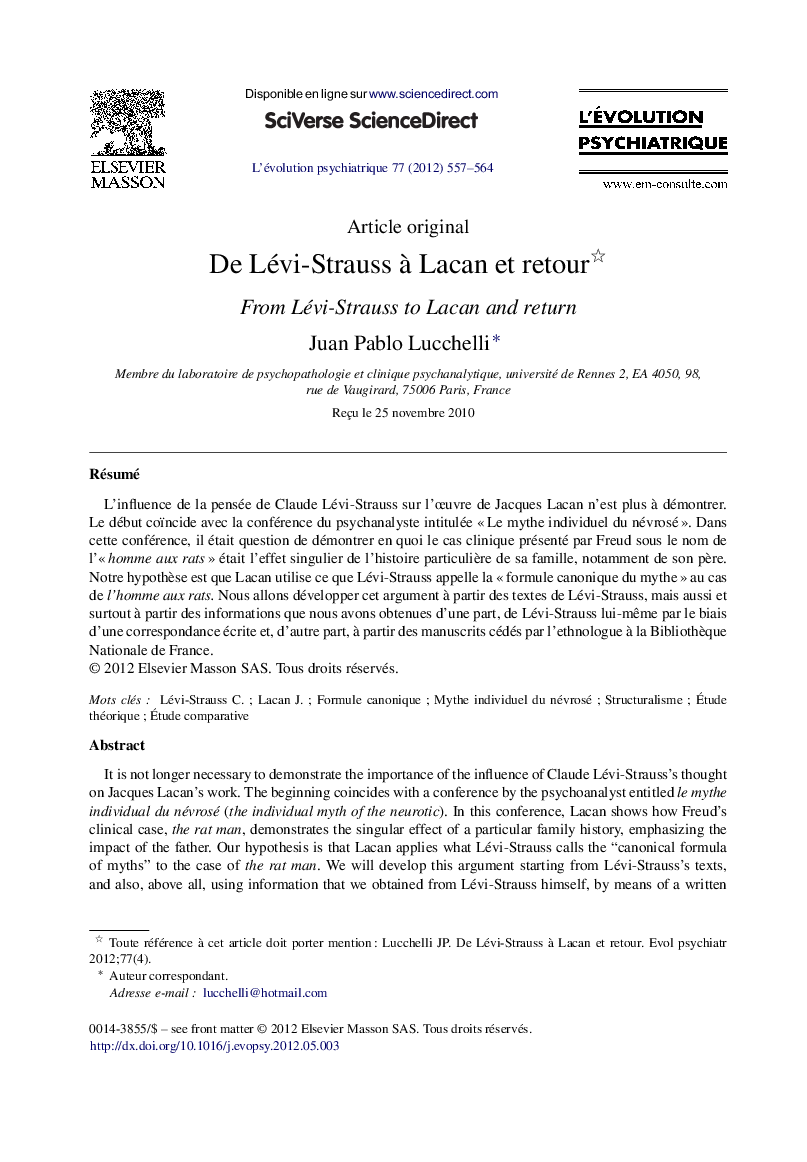| Article ID | Journal | Published Year | Pages | File Type |
|---|---|---|---|---|
| 908726 | L'Évolution Psychiatrique | 2012 | 8 Pages |
RésuméL’influence de la pensée de Claude Lévi-Strauss sur l’œuvre de Jacques Lacan n’est plus à démontrer. Le début coïncide avec la conférence du psychanalyste intitulée « Le mythe individuel du névrosé ». Dans cette conférence, il était question de démontrer en quoi le cas clinique présenté par Freud sous le nom de l’« homme aux rats » était l’effet singulier de l’histoire particulière de sa famille, notamment de son père. Notre hypothèse est que Lacan utilise ce que Lévi-Strauss appelle la « formule canonique du mythe » au cas de l’homme aux rats. Nous allons développer cet argument à partir des textes de Lévi-Strauss, mais aussi et surtout à partir des informations que nous avons obtenues d’une part, de Lévi-Strauss lui-même par le biais d’une correspondance écrite et, d’autre part, à partir des manuscrits cédés par l’ethnologue à la Bibliothèque Nationale de France.
It is not longer necessary to demonstrate the importance of the influence of Claude Lévi-Strauss's thought on Jacques Lacan's work. The beginning coincides with a conference by the psychoanalyst entitled le mythe individual du névrosé (the individual myth of the neurotic). In this conference, Lacan shows how Freud's clinical case, the rat man, demonstrates the singular effect of a particular family history, emphasizing the impact of the father. Our hypothesis is that Lacan applies what Lévi-Strauss calls the “canonical formula of myths” to the case of the rat man. We will develop this argument starting from Lévi-Strauss's texts, and also, above all, using information that we obtained from Lévi-Strauss himself, by means of a written correspondence, and by using manuscripts given to the Bibliothèque National de France (France's National Library) by the ethnologist himself.
